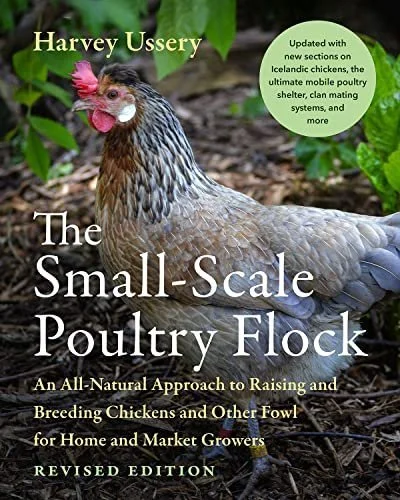Photo by The Brewers on unsplash
A chicken coop doesn’t have to stink. In fact, if it smells bad, it could be dangerous. There are ways to manage chicken poop so it doesn’t stink, and what Harvey Ussery proposes in The Small-Scale Poultry Flock is to make valuable compost from the birds’ droppings.
”It is possible to make the chicken coop in effect a slow-burn compost heap if you leave the earth itself as the floor, and keep it covered deeply with high-carbon organic litter. The sorts of decomposer microbes at work in the compost heap — and in the soil food web — migrate out of an earth floor into the deep litter; the slight wicking of moisture out of the earth helps them proliferate and thrive.”
Chicken poop is rich in nitrogen. As in a compost heap, carbonaceous material is needed in the litter to balance out the nitrogen and keep the henhouse smelling sweet. “The more carbon in the mix, the more chicken manure the litter can absorb before its nitrogen drives the C:N ratio out of balance, resulting in production of ammonia,” Ussery points out.
Materials used for deep litter depend on what is most readily available and affordable. Usury prefers oak leaves from a neighbor’s mature white oaks. Kiln-dried wood shavings are excellent, with their extremely high carbon-to-nitrogen ratio (500:1), but expensive to purchase. Wood chips, sawdust, wood shavings, ground up corn stalks, buckwheat, and straw are other options. Aim for a depth of 12 inches, if possible, and as dry as possible to avoid mold.
Like a compost pile, the composting litter will help warm the henhouse in winter and keep odors down. If the tell-tale ammonia scent arises, respond with a thicker layer of litter.
“The deep-litter approach to manure management enlists the flock in the great work of soil fertility. Over time — figure at least a year — the litter will be reduced by the action of chicken and microbe to a finished compost. Sniff a handful: Like any fine compost, it will smell of earth with not the slightest hint of raw manure. In my experience, litter at this stage of decomposition is ready to use directly in the garden — it will not burn plants, it will not inhibit seed germination, and it visibly boosts the growth of crops.”

